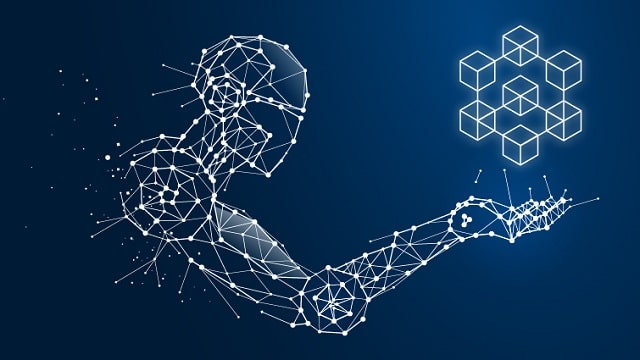
Although terms like "blockchain" and "artificial intelligence" (AI) may sound like they belong in a science fiction film, they are already having a profound impact on the financial services sector. However, it is unclear what blockchain and AI actually are for the average person or basic business.
Cryptocurrencies such as Bitcoin and Ethereum are often the first things that come to mind when discussing blockchain technology, but this is like defining Google as just a search engine.
By removing control of data from a single authority and instead relying on a distributed ledger, blockchain technology has the potential to revolutionize the way information is stored and shared.
Perhaps when we think about blockchain and AI, we picture intelligent robots exhibiting human-like behavior, like those in the Terminator movies.
Machine learning is an area of artificial intelligence that employs mathematical and statistical methods to help machines "learn" how to do something new.
Modifying The Economy
The financial services sector is seeing profound shifts as a result of the advent of both AI and blockchain technology. The speed at which blockchain and AI can analyze data is orders of magnitude greater than that of humans.
It paves the way for banks and other financial organizations to use massive datasets to get new insights, streamline routine processes, and speed up innovation.
Decentralized finance (DeFi) plus smart contracts are two further ways in which blockchain technology is upending the financial sector by increasing transparency and providing greater access to financial markets.
There will be a growing need to reevaluate our current centralized monetary systems as the number of DAOs being created increases.in order to avoid any inconvenience one can trade via trading bots like the bitcoin millionaire too.
Joint Efforts
The similarities between blockchain technology and artificial intelligence. In reality, not very much at all. Both blockchain and AI are at the forefront of modern technological innovation and development, and both have a wide range of practical applications.
Blockchain may be used as a safe repository because it is distributed, immutable, and transparent. However, AI is a data processor that is centralized, constantly changing, and hard to understand.
Both blockchain and AI have issues with sustainability and efficiency, and both have privacy and transparency concerns. This makes them a natural pair, as each can help solve the other's problems. AI provides scalability, efficiency, and security, while blockchain provides trust, privacy, and accountability.
Situations Where Trust Is Established Through Its Use
Accountability is a challenge for AI since it brings doubt to the results produced by the technology. In order for people to understand and have faith in the correctness of AI outputs and outcomes, we need to be able to demonstrate how the AI systems work, as proposed by the European Commission in a series of regulations centered on trustworthiness.
Due to their immutability, the digital records stored in a blockchain could provide useful insights on the framework and model used by AI, helping to overcome the problem of data inaccuracy. Storing and disseminating AI in the blockchain with an integrated audit trail can further improve data security and integrity. The integrity of the models and the data required to train them can be maintained with the help of this audit trail.
To further illustrate how blockchain might be used to generate confidence in AI, we can look back to the technology's roots. Users tend to be skeptical of centralized AI systems because of this fact.
Many people today are wary of giving any information to the government or even huge corporations. The difficulty arises in assuring people that technological advances haven't gone too far and invaded their privacy.
Robotics And Effectiveness
Artificial intelligence (AI) isn't unfamiliar with the idea of automation, but when combined with blockchain, powerful synergies in scalability and efficiency can be realized.
By eliminating the need for intermediaries in multiparty transactions, blockchain technology can boost transaction speeds and reduce transaction costs.
By streamlining these exchanges, people are given more control over their data, and the security of their transactions is guaranteed by blockchain technology.
Identifying Fraud
Blockchain technology makes it impossible to tamper with a secure transaction, and it also guarantees that every transaction written in the blockchain will adhere to its own set of rules.
The decentralized nature of the blockchain makes it an ideal tool for detecting and preventing fraudulent transactions.
The blockchain may be mined for anomalies on a massive scale using AI as a transaction layer. Data mining for anomalies is an integral part of the fraud detection process.
The Silver Lining
Today's FinTech industry is extremely specialized and consolidated. Increased transaction speeds, openness, and security are just some of the benefits that could result from the combination of blockchain technology and artificial intelligence in the development of FinTech 2.0.
As more people acquire access to financial markets, DeFi may also result in a wider pool of investors. As the number of financiers grows, so does the volume of data that will require AI for processing.
Artificial intelligence (AI) may be used to expand processes, speed up transactions, and derive insights from massive volumes of data, and blockchain provides the platform for smart contracts to enhance transparency and data management.
Even if AI and blockchain don't radically alter the financial sector, they will alter the way we interact using financial data.
